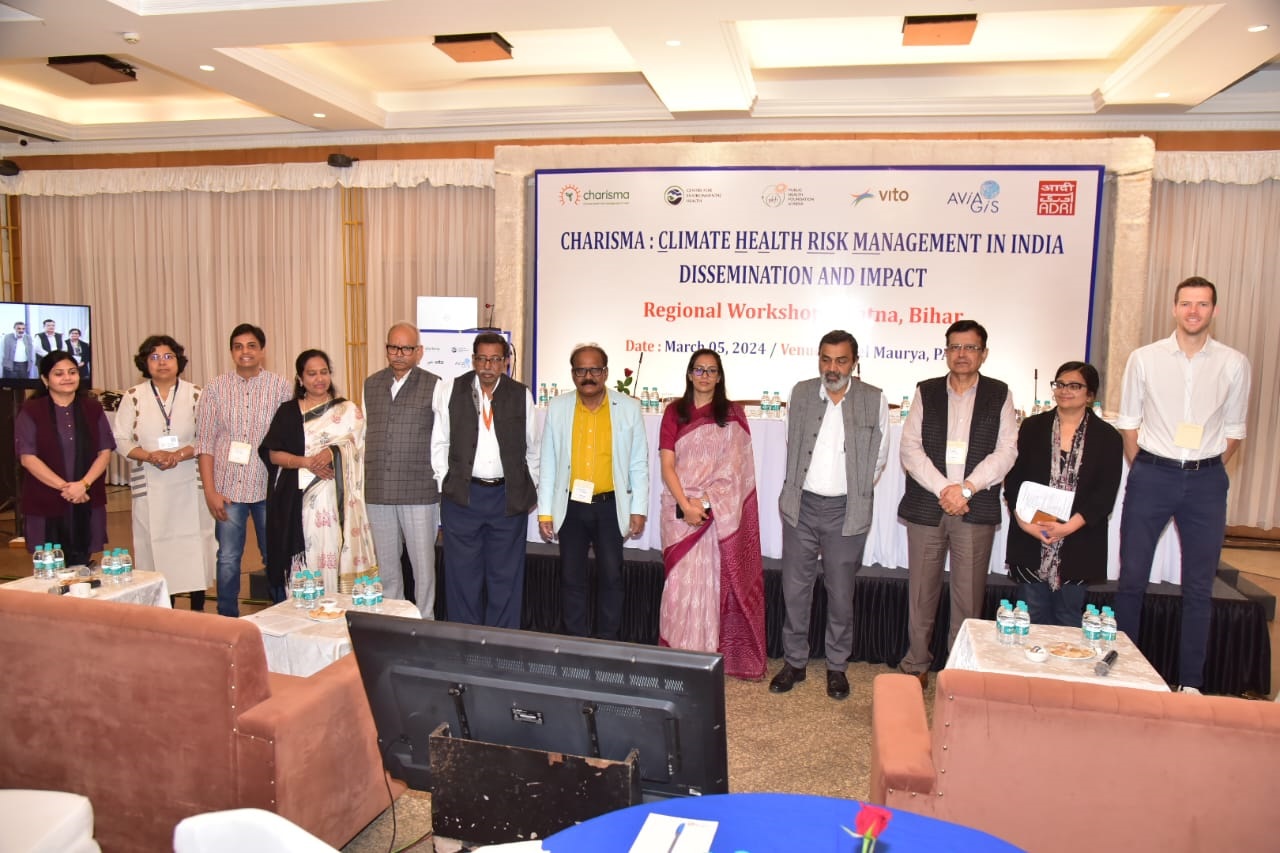Events of ADRI Patna

Patna, March 5. The Asian Development Research Institute (ADRI) in collaboration with Centre for Environmental Health (CEH) at the Public Health Foundation of India (PHFI) organized a regional workshop titled Climate-Health Risk Management in India (CHARISMA): Dissemination and Impact today. This workshop was aimed at addressing the crucial intersection of climate change and public health.
Welcoming the guests, Dr. Poornima Prabhakaran, Director of the Centre for Health Analytics Research and Trends, Ashoka University stressed on the fact that climate change is a burning issue of the utmost concern. Its adverse effects get manifested not only in the form of deterioration in people’s health but also in lost livelihoods.
Shree Tripurari Sharan, State Chief Information Commissioner, portended that the calamitous consequences of climate change have now percolated right down to individual homes and society. He lamented the fact that rice and wheat consumption and cultivation has largely replaced millets (Ragi) in people’s diets, thereby accentuating this crisis.
Dr. Jente Broeckx of VITO, Belgium, provided insights into the CHARISMA dashboard, a powerful tool designed as part of a three-year project by PHFI-CEH to assess and manage climate-related health risks in urban environments. In a collaborative effort with local stakeholders and authorities, this project aims to support Indian cities in drawing up measures to adapt and cope with climate and health impacts caused by climate change. The project is targeted to work in 50 cities.
Speaking on the occasion, Dr. S. N. Sharma, VBD Consultant, AVIA-GIS, Belgium shared his experiences on how the mapping for rise in Dengue cases was done at Lucknow under the CHARISMA project.
Smt. Bandana Preyashi, Secretary, Environment, Forest and Climate Change announced that the Bihar government has recently uploaded a strategic document, which the Hon’ble CM remarked will be in the public domain for eliciting feedback from the scientists and other stakeholders in order to combat climate change. She pointed out that the experience of working at the ground level is of paramount importance while devising policy.
Mr. Jostein Nygard, Senior Environment Scientist at the World Bank remarked optimistically that there has been some progress in mitigating air pollution in the Indo-Gangetic plains. Ms. Neha Sharma, Environment Consultant at the World Bank praised Bihar for being ahead of all other Indian states in the task of setting up air-quality monitoring stations in all the districts. She also suggested the distribution of clean cook-stoves to homes so as to get the PM 2.5 levels to go down to a desirable 35 micrograms from the current 70 micrograms.
Smt. Alankrita Pandey, CEO, Ayushman Bharat; Dr Ravishankar of Medanta Hospital, Dr. Indroneel Sen and Dr. Ashok Ghosh were among some of the many researchers and academicians who deliberated in this workshop. Dr. Poornima Prabhakaran, Director, CHART- Ashoka University welcomed the distinguished guests and Dr. Ashmita Gupta, Member-Secretary, ADRI sketched out an overview of initiatives that ADRI has been undertaking.